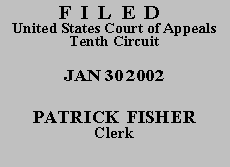

| UNITED STATES OF AMERICA,
Plaintiff-Appellee, v. DEANNA LINN HOUSTON, Defendant-Appellant. |
|
Defendant Deanna Linn Houston appeals that portion of her sentence requiring that she serve three years of supervised release after her incarceration. Because defendant has not shown that the district court plainly erred in imposing this condition, we affirm.
Defendant pled guilty to drug distribution and participation in a wide-ranging drug distribution conspiracy. At sentencing, the district court found that defendant qualified for the "safety valve" provisions of 18 U.S.C. § 3553(f) and § 5C1.2 of the United States Sentencing Guidelines (USSG). On this basis, defendant's offense level was reduced by two points and she was exempted from the statutory minimum sentences. See § 3553(f); USSG § 2D1.1(b)(6). After adjustments, defendant's sentencing range under the guidelines was from 168 to 210 months' imprisonment. Based on defendant's post-arrest cooperation and the district court's interest in encouraging her to make a better life for her son, see Sentencing Tr. at 7, defendant was sentenced to the bottom of the guidelines range.
With regard to the term of supervised release, the probation department's presentence report (PSR) stated that a three-year term of supervised release was required by statute, without addressing whether application of the safety valve provisions altered this requirement. In fact, under USSG § 5D1.2(a)(2) and Application note 1 to that section, defendant's required term of supervised release was only "at least two years but not more than three years." Defendant did not object to the calculations in the PSR, and did not object when the district court sentenced her to a three-year term of supervised release.
On appeal, defendant argues that the district court erred in sentencing her to three years' supervised release. Because she did not object or otherwise raise this issue to the district court, we review only for plain error. United States v. Orozco-Rodriguez, 60 F.3d 705, 707 (10th Cir. 1995). Under this standard, we have discretion to notice a forfeited error if it is plain, affects substantial rights, and implicates "the fairness, integrity or public reputation of judicial proceedings." United States v. Olano, 507 U.S. 725, 732 (1993).
After reviewing the record, we conclude that defendant did not meet her burden of showing either that there was error, or that the error affected her substantial rights. See id. at 734 (noting defendant's burden of persuasion). Although the PSR misstated the law, defendant has not shown that the district court relied on this misstatement, or that the court believed a term of three years' supervised release was mandatory.
Even assuming the district court relied on the PSR in formulating the sentence, the three-year term of supervised release was within the court's discretion under USSG § 5D1.2(a)(2), and defendant has not demonstrated that the court would have imposed a lesser term had the issue been raised. The court's statement that it intended to sentence defendant to the bottom of the sentencing range was directed at her incarceration, which separated defendant from her son, and not to the time she would spend on supervised release. Finally, we do not believe that the alleged error seriously affected the fairness of the judicial proceeding. Olano, 507 U.S. at 732.
The judgment of the United States District Court for the Western District of Oklahoma is AFFIRMED.
Entered for the Court
Circuit Judge
*. This order and judgment is not binding precedent, except under the doctrines of law of the case, res judicata, and collateral estoppel. The court generally disfavors the citation of orders and judgments; nevertheless, an order and judgment may be cited under the terms and conditions of 10th Cir. R. 36.3.